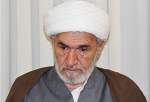Iranian leaders have repeatedly highlighted the necessity of realism in negotiations. Ayatollah Sayyed Ali Khamenei, the Leader of Islamic Revolution, has warned negotiators to remain cautious of adversaries, particularly the United States, describing them as “deceptive and domineering.
15 Apr 2025
- Hamas ready to release Israel captive if end to Gaza war ‘guaranteed’
- Leader receives judiciary officials on occasion of Persian New Year (photo)
- Malaysian Islamic centers urge Muslims for united action in support of Palestine
- Leader calls Muslim world for coordinated move against Israeli crimes in Gaza
- Cleric calls Islamic states to sever diplomatic, economic ties with Israel
- “Palestine is wounded”, Ayatollah Khamenei
- “Islamic resistance, key to victory against oppression”, cleric
- Iran announces Muscat as venue for second round of indirect talks with US
- Hamas military wing praises Ansarallah determination to support Gaza during genocide
- Israeli army doctors demand return of captives and end of Gaza war












